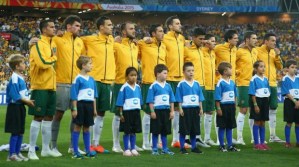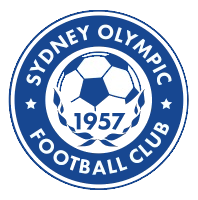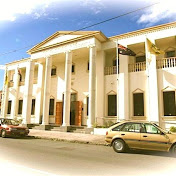
Should Australia emerge on top after Saturday night’s game they would return to Melbourne where a sell out crowd would pack AAMI Stadium for a clash with either the Uzbeks or the Saudis. Photo: Getty Images
Saudi Arabia, Uzbekistan or China? Should the Socceroos have any fear of their potential Asian Cup quarter-final rivals from Group B, which crosses over with Australia’s Group A?
Much water has yet to flow under the bridge before the line-ups for the sudden-death ties are determined with virtually all positions up for grabs save China’s.
The Alain Perrin-coached side, having come from behind to defeat Uzbekistan in Brisbane on Wednesday evening, is now guaranteed top spot in Group B even if it falls to North Korea in their final game.
The Chinese have six points, the Uzbeks and the Saudis three apiece after both beat the North Koreans.
The most either could garner would be six, but because both have lost to China (the Saudis 1-0, the Uzbeks 2-1) neither could displace the team from the People’s Republic at the top because the first tiebreaker used in this competition to separate teams on the same number of points is their head-to-head record.
That means that if Australia loses to South Korea in their final group match on Saturday evening (also in Brisbane), they will finish second, and stay in Queensland where they would meet the Chinese.
However, if Australia can beat or even draw with the South Koreans, they would top the group. A win would give the Socceroos nine points to South Korea’s six, while a draw would leave both on seven points.
The Socceroos would be top by virtue of a superior goal difference, which currently stands at plus seven compared to South Korea’s plus two – Australia having beaten Kuwait 4-1 and Oman 4-0, while South Korea could manage only 1-0 wins over the same opponents.
Should Australia emerge on top after Saturday night’s game, they would return to Melbourne where a sell-out crowd would pack AAMI Stadium for a clash with either the Uzbeks or the Saudis.
The Uzbeks have had a muted tournament so far. The former Soviet Republic struggled to put away the ultra-defensive North Koreans in their opening game, winning 1-0 in driving rain in Sydney. They took the lead against the Chinese but surrendered the advantage, going down 2-1.
Their only hope of qualifying is if they beat the Saudis when they meet at AAMI Park on Sunday, as their goal difference of zero (from a 1-0 win and a 2-1 defeat) is worse than Saudi Arabia’s. After the latter’s 4-1 thumping of North Korea on Wednesday their goal difference is plus two, so a draw would suit the Green Falcons fine as it would mean they go through.
On the evidence of the performances of both those sides the Socceroos should not be quaking in their boots if they come up against them. They should respect them, of course, but certainly not fear them.
Their record against the Uzbeks in Asian Cups and World Cup qualifiers is good – the Socceroos defeated Uzbekistan 6-0 in the semi-final of the last tournament in Qatar – while an experimental Australian side saw off Saudi Arabia 3-2 in their recent friendly in London.
The Saudis squandered a number of chances against the North Koreans and showed plenty of character to come back having conceded the first goal. In the past they might not have had that resolve; they certainly didn’t in the last Asian Cup, when they collapsed after things started going against them and exited winless after the first phase.
This time round new coach Cosmin Olaroiu has got the Saudis playing with self-belief and the Romanian feels that they deserved to have beaten China, not lost, on a Brisbane surface that he and many others have been highly critical of.
That could be an issue for the Australians, as they too would prefer to play on a better surface; at present AAMI Park is in much better condition than Suncorp.
While the Saudi side has no little flair and attacking threat – Nawaf Alabid, Salem Aldawasari and Mohammed Al Sahlawi all caused plenty of problems for the hapless North Koreans on Wednesday evening – it can be flaky at the back.
The North Koreans began brightly, took the lead and for at least 25 minutes looked the team most likely to score as they breached the Saudi rearguard often, forcing goalkeeper Waleed Abdullah to earn his match fee.
But the Arab side finally got on top once they drew level before the break and in the end were worthy winners after tiring out the Koreans, passing up on numerous opportunities to post an even more convincing scoreline.
Olaroiu was delighted with the outcome on Wednesday, but quickly counselled against any complacency.
“I am happy with the game and the performance. We used our spirit, we scored goals. Now we have to forget and think quickly about the next game against Uzbekistan.
“We played better against China. If we scored the penalty things would have been different.
“I was confident because it is difficult to play the way North Korea play the entire game. I knew our ball possession would make them tired and concede more spaces. We played with two strikers which gave more space in the middle. They were dangerous on counter-attacks.
“The pitch and stadium was excellent, we were the more technical team … but the Uzbek game, it will be a different game, different team, a different way to play.”
North Korea’s final match with the Chinese – the embattled and secretive country’s closest politically ally – is now a dead rubber. But asked whether the North Koreans would essentially cede the game to one of the few countries in the world with which it has relations by playing youngsters and developing players, coach Jo Tong-sop insisted his side would be trying to win.
“Our skills and levels are not high enough. We have to develop as quick as possible to make better players in the future. We have one more match and we will do our best to win this match, it is the spirit of fair play and football,” he said.
“Nobody would be happy with that result. I think the start of the match was okay. Our defensive strategy was working very well until we conceded the second goal.
“The players were not concentrated on the match enough. They had some mental stress for the second goal because it came so easily,” the coach said through an interpreter, also thanking the crowd for calling the name of the nation’s Supreme Leader Kim Jong-un during the match.
source:smh.com.au


















